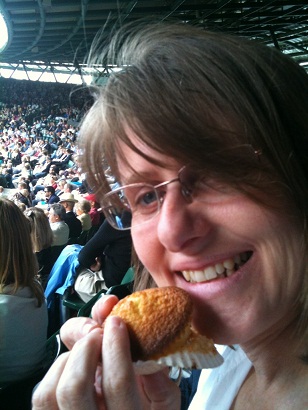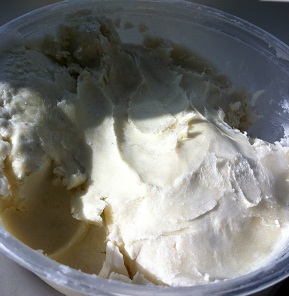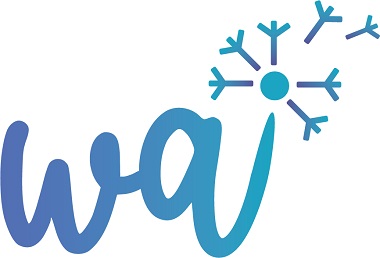They don’t mean to but your friends may make mistakes where catering for your allergies are concerned. After all, we’re all human, we all make mistakes sometimes, and if you’re capable of slipping up and eating the wrong thing, not checking enough in restaurants or just being a bit blase, then your friends might too.
Many things are just habit, like stiring tea with the same teaspoon for everyone, fishing out your tea bag with the same spoon they stirred the other cups with. Double dipping with buttery knives into jam, honey, etc. Swapping serving spoons from one pan to another and countless other simple things that are habit. We do them every time we make a cup of tea or cook a meal. Changing that habit and putting in place extra safeguards when cooking for someone with allergies can take a while to get your head around. Not surprising that most people are too scared to cater for allergic friends.
I was reminded of this when I met a very dear friend recently who owned up, six months after the event (the event being me having a massive asthma attack and a visit to A&E) that the dairy free cakes she’d made especially for me might just have contained an itty bitty bit of butter! She was very upset, and very brave to even come clean and tell me really. I’m glad I know now because that asthma attack scared me. I had no idea what caused it and no idea what that meant for my health. Did I have a new unknown allergy and what should I do to avoid this new mystery danger?

What she realised recently when scanning photos and coming across this one of me, just about to take a bite of said dairy contaminated cake, was that she had left out the milk from the recipe, but that she had included butter! Butter! Butter! It’s quite definitely made from milk, and therefore in the dairy family, but does everyone think like you and I?
Is saying you have a dairy allergy enough?
Dairy, to me, means milk, butter, cheese, yogurt, cream and all derivatives thereof. But to someone else, my friend included, does dairy always mean all these things? Does everyone realise that they need to check ALL ingredients for ALL types of dairy? I think not. My advice to get around this one is to be very, very exact and to actually list EVERY dairy element. It’s the only way. If my very clever, intelligent, successful business woman friend can make this mistake, how many waiters, waitresses, chefs and your friends could also do the same?
Are eggs dairy?
It reminded me of another problem I often have. I can eat eggs. A mild intolerance means I can occasionally indulge with fried, scrambled and poached eggs, should never eat mayonaisse or salad cream, but that cakes, biscuits etc. are perfectly OK. Cooked egg is fine. So I never even mention the egg intolerance. It’s not important. I manage it myself. But my point here is that a huge proportion of people think eggs are dairy.
Ever seen a cow lay an egg?
This has meant that my already restricted diet is often limited further when restaurants ensure my meal is egg free too because they think eggs are dairy. Waitresses will say, ‘oh you can’t have the meringue even if we leave off the cream because that’s got eggs in it’. They smile, pleased with themselves because they have been really helpful and I’m glad they do point this out. I might well have an egg allergy as well, but I am continually having to explain that no, eggs are OK, they are not dairy. Dairy is from cows.
What do they actually hear anyway?
A recent conversation identified a further problem with communicating your allergies. Here’s an example.
Me: ‘I’ve got a serious, life threatening, allergy to all milk, butter, cheese, cream etc. All dairy. I can’t eat any dairy because I’ll be really ill. I carry an epipen. So could you remind the chef and please check that the meal I’ve ordered will be safe? I also have an allergy to tomatoes, all nuts and celery.’
Waitress: ‘Right, so let me just check. You can’t have gluten…’
Gluten? Where did that come from? I think that because Coeliac disease and gluten free food are so much more popular and wide spread now that people get fixated on ‘gluten free’. This is actually fantastic on one level because allergies and gluten free have raised awareness. But this issue raises a further problem. What you say and what someone actually hears can be two very different things. Again, they don’t mean to ignore you, but they are probably not educated fully on allergies and what this means, they are underpaid and overworked and probably on auto-pilot.
If you have one allergy it’s going to be hard enough to communicate the seriousness. As long as they do hear, and check that they have, you should get the message across. The problem arises also when you have multiple allergies. After mentioning one or two you can see their eyes glazing over. When you’re onto allergen number three and four you’ve lost them.
One in five staff members at restaurants think traces of allergens are OK for allergic diners
Add this to the recent study which rather frighteningly uncovers that one in five staff members surveyed thought that an allergic customer consuming a small amount of allergen would be safe, as would removing the allergen from a finished meal (e.g. picking the nuts off a pre-prepared desert would render it safe for a nut-allergic customer to eat).
Only one third of respondents had received any sort of food allergy training, but nonetheless 80% reported confidence in providing a safe meal for their food-allergic customers. Remember, of that 80% a huge majority are confident that picking nuts off a desert would make it safe for a nut allergic diner. Very, very scary indeed.
Read this article on Science Daily to find out why Many Restaurant Staff Are Undertrained and Misinformed About Food Allergies.
Allergy cards could be the answer!
This has only just occured to me, but maybe having allergy dietary cards, in English, for people to read might help. Would it sink in better in writing? I wouldn’t be without them when eating abroad in foreign countries, but what about here in the UK? Would it work? Would you be brave enough to actually produce a card to give to a waiter or waitress? I think I would. What is your health and safety worth? I know, I know, a lot of hassle and constant checking, but eating out will always be tough as long as misconceptions such as those outlined in the survey in Brighton by Science Daily (click above to read more) continue to be common place.
It means that vigilence is key. Phone before hand, speak to the manager and chef if possible, speak to friends openly, explain to them fully, and never, ever assume that they’ve got the message. Offer to help prepare food, discuss how you cook things, how you avoid your allergen. Follow a phone conversation up with an email or text message and always, always check again when you arrive at the restaurant, friend’s house, or wherever you are.
As Sloane Miller, author of Allergic Girl also advises, make friends with chefs and managers. Build a relationship with them. Be friendly, open and honest and ensure they comprehend the seriousness of your allergy and what they need to do to ensure you’re safe. If you do build up a rapport at a certain establishment, build on that, continue to educate them and help them to spread the word about what allergies really mean.
No one wants you to get ill, least of all your friends. Some of them might think you’re nagging, but some of them might have forgotten that the knob of butter is dairy… some of them might be incredibly stressed out at work, a million and one things going round in their heads. A gentle reminder might just avert disaster and a true friend won’t mind your constant checking – they’ll understand that you live with the fear that one day, any day, you could eat the wrong thing. Anyone who has had an anaphylactic attack will know how terrifying that is.












I was searching this for something about me, but I think I may have escaped. I always feel triumphant when 24 hours after eating something I have cooked for you, I hear that you are well. I never cook for anybody else and feel such a pleasure a day later. However… the tea stirring is something I don’t think I have thought about. Good job you mentioned it. So… when are you popping over for a cuppa
Nicola my lovely neighbour – that pie was one of the best EVER! You taught me about dairy free frozen pastry! The lemon drizzle wasn’t bad either. Regarding cuppa – the house will be open to elements tomorrow if you’re around?
me again. You say you cant eat mayonnaise but some mayos have heat treated eggs in. We had to check at nursery because we couldn’t give children raw eggs. Could you eat a heat treated egg ?
Hi Nic, you know I probably could! Which brands wd be ok? I didn’t know you cd get that…am now getting excited about the prospect of welcoming mayonnaise back into my life! Oh mayo, I love you and have missed you all these years. Egg free mayo is ok but not a patch on the real stuff!
This is a really useful post, thanks Ruth. And SO right. I used to threaten to have a big banner made to put up in the clinic that ‘Eggs Do Not Come From A Cow!’. I would be rich if I had a pound for every person who assumed eggs were dairy – that’s the power of the marketing from the Milk Marketing Board in the past, I reckon!
I also come across the glazing over after the second allergen and the ‘gluten free’ thing. Drives yer mad. Such an education need out there which people like us bloggers need to help answer somehow. If we keep dripping the info out there, I’m sure it can only help.
Like the idea about the cards – I often used to do that – but I got ill so much from cross-contamination I rarely go out for meals now, preferring safer theatre, music, festivals and cinema now – who says we can’t still have fun?!
Micki I am coming to the conclusion that eating out for me is a bit like russian roulette. My health is in their hands and I never know whether they have listened or not. Too much of a coincidence that I’m rarely ill at home and nearly always suffer after eating out. I keep getting complacent though and I learn the hard way with a face full of hives and sore swollen eyes. Lovely! Thanks for the comment. PS. I downloaded your ebook today. Very good. I’ve been writing one myself but am worrying I might be giving away too much for free!
Thanks for this post! You have summed up a lot of how I feel when I take my 3 year old to a restaurant. But the dairy thing, I don’t have to worry about because my 3y/o Sally is severely allergic to milk and eggs.
But the restaurant thing just scares me so badly. I call always call first. My daughter is allergic to milk and eggs and also a picky toddler, so we don’t have a lot of choice anyway. I have crossed SEVERAL restaurants off my list of ever attending–with her or not–because I spoke to a manager and they acted like I was the biggest pain for calling and expecting them to be knowledgeable about the food their restaurant serves.
The people that scare me the most are the servers who think they know about my child’s allergy and I know nothing. They say, “Oh, well then you don’t want to get the macaroni and CHEESE–and cheese is made from milk– or the mashed potatoes because there is BUTTER–milk too– in it, but everything else should be fine.” UMMMMMMMMMMM…..NO. Then I start explaining that even tiny amounts cause her eyes to swell shut and her throat to close and they are so shocked like they didn’t know food could do that. I am the expert at my child’s allergies, don’t act like I came to my neighborhood restaurant to ask my server to please teach me what milk can be turned into.
With sane servers, I remind, beg, promise a huge tip and charm them into diligence. I remind them they wouldn’t want to kill such a cute little girl. They bring her a painstakingly prepared, monitored dish that meets my specifications. Then my toddler throws it on the floor.
I love the end of this comment, about your toddler throwing the food on the floor. That made me laugh. It is so hard though. The last two times I ate out, I had a reaction. Not anaphylaxis, just my whole face, neck, scalp, shoulders and neck getting covered in hives and huge big swollen blisters which leave horrible scabs and my face looks like I’ve been burnt. Horrible. Eating out sucks. The safest thing is not to eat out, unless you can find a safe place that guaratees you and your child’s safety.